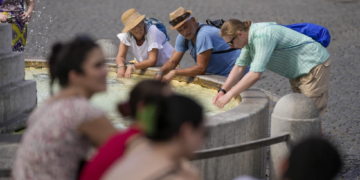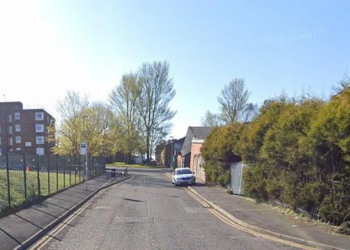Ugandan authorities in the town of Mpondwe-Lhubiriha have recovered the remains of 41 individuals, among them 38 students, who were brutally killed in a horrific attack on a secondary school near the Congolese border. The incident, suspected to be the work of rebels, involved a combination of burning, shooting, and hacking to inflict death upon their victims. Tragically, the assault resulted in the loss of innocent lives, including the students, a security guard, and two members of the local community. The assailants, believed to be rebels, managed to escape across the porous border into Congo, leaving behind a scene of devastation. In addition to the fatalities, a further six individuals were reported as abducted during the raid. The Ugandan military, upon responding to the incident, discovered the school engulfed in flames and the lifeless bodies of students scattered throughout the premises. The attack, carried out by approximately five perpetrators, occurred late at night around 11:30 p.m., further compounding the shock and horror of this deeply tragic event.
The aforementioned statement reported that 47 individuals were tragically killed in the incident, while eight others sustained injuries and are currently receiving medical treatment at a local hospital. Ugandan troops are actively engaged in pursuing the culprits responsible for the attack in order to rescue the abducted students, who were coerced into transporting stolen food towards Congo’s Virunga National Park.
According to Ugandan authorities, the assault on Lhubiriha Secondary School, situated in the border town of Mpondwe within the Ugandan district of Kasese, was carried out by the Allied Democratic Forces (ADF). This extremist group has a history of launching attacks from its bases in the volatile eastern region of Congo, and they are responsible for this tragic incident. The school, which is privately owned and attended by both male and female students, is located approximately 2 kilometers (1.2 miles) away from the Congo border.
In a phone conversation with the Associated Press (AP), Joe Walusimbi, a representative of Uganda’s president in Kasese, revealed that some of the victims of the incident were so severely burned that their identities could not be established.
Expressing her strong disapproval, Winnie Kiiza, a prominent political figure and former lawmaker from the region, condemned the attack as cowardly through a post on Twitter. She emphasized that assaults on educational institutions are unacceptable and constitute a serious violation of children’s rights. Kiiza further asserted that schools should always be regarded as a secure environment for every student.
The Allied Democratic Forces (ADF) has faced numerous accusations of launching attacks in remote areas of eastern Congo, targeting innocent civilians in recent years. This elusive group seldom takes responsibility for its actions, operating in the shadows.
The ADF has been a longstanding opponent of Ugandan President Yoweri Museveni, who has held power in East Africa since 1986 and is considered a security ally of the United States.
Formed in the early 1990s by disenchanted Ugandan Muslims who felt marginalized by Museveni’s policies, the rebel group conducted violent attacks in Ugandan villages and the capital city. One notable incident occurred in 1998 when 80 students were brutally massacred in a town near the location of the most recent attack.
Following a military offensive by the Ugandan army, the ADF was pushed into eastern Congo, a region where numerous rebel groups operate due to limited government control.
Over time, the ADF has established connections with the Islamic State group, further complicating the security situation.
In March, suspected ADF extremists claimed the lives of at least 19 people in Congo.
Ugandan authorities have consistently pledged to pursue ADF militants, even beyond their own national borders. In 2021, Uganda conducted joint air and artillery strikes in Congo to target the group.






























